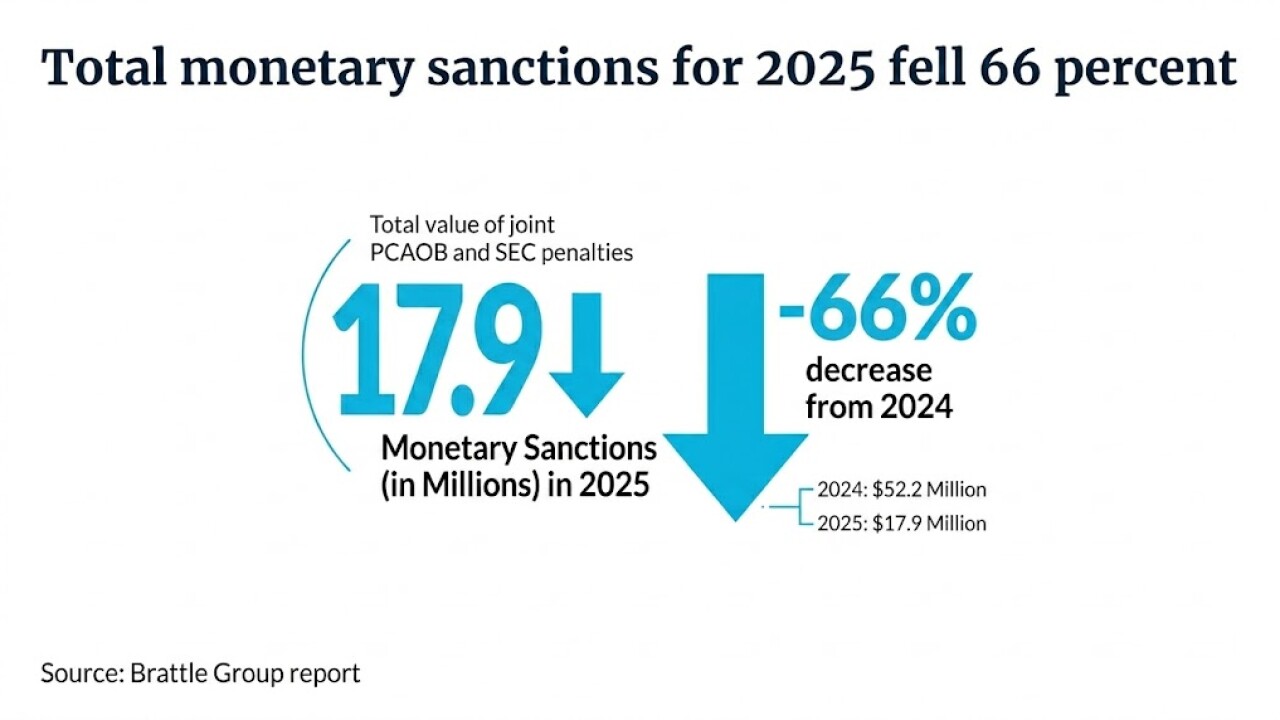Officials from the Financial Accounting Standards Board are defending their consultations with investors in the wake of a report from a Securities and Exchange Commission investor advisory committee calling for far-reaching changes in how FASB sets standards.
FASB chair Richard Jones, technical director Hillary Salo and deputy technical director Nellie Debbeler spoke Tuesday during a session of the AICPA & CIMA Conference on Current SEC and PCAOB Developments in Washington, D.C. Salo kicked off the session by asking Jones to share an update on the outreach that FASB had done this past year to investors. The question seemed to come in response to a
"We are a mission-driven organization and, when I think of investors and our outreach, we're really focused on people who use financial statements to make capital allocation decisions," said Jones. "At the end of the day, that's our product. That's who it's for, meaning the financial statements that are prepared. As a result, they're a key part of our process of making sure we're continuously improving standards and setting the right type of GAAP. "

When he joined the FASB a little over two years ago, one of the first things he did was to try to get a better understanding of the board's investor outreach process, and discovered it wasn't apparent to many on the outside.
"As I went through the process, I was very impressed with what we did," said Jones. "I thought it was a great process, but I also thought it was probably the best kept secret in the world, in the sense that we didn't really advertise a lot about how we had investors in our process and provide that transparency. What I did learn was that investors are involved in every part of our process. We have an Investor Advisory Group, which is our only single-stakeholder advisory group. All of our other advisory groups have investor representation on those groups."
He pointed out that during his first year chairing FASB, the board published an
"A lot of our discussions with investors and the input we get isn't through comment letters," said Jones. "It's through individual interactions with them."
In the past year, as detailed in the latest investor outreach report, FASB had over 500 interactions with investors. FASB often hears some typical forms of feedback in its outreach efforts.
"The two most common things we hear in standard setting are investors want it, or investors don't want it," said Jones. "And the other is that it costs too much to prepare that information. But neither of those are the endpoint. And particularly when it comes to investors, what we focus on is really what's the key information they use in their capital allocation decisions? How does current GAAP respond to those needs and how can we improve?"
He expects FASB to keep producing such reports each year during his term, and they will be posted on
Salo asked him about balancing the needs of investors with those of other FASB stakeholders.
"Our focus is on the information for investors, but at the end of the day, we're creating accounting standards," said Jones. "Accounting standards are applied by accountants. They have to be able to be applied by accountants and they have to work. They have to be able to be audited. And then they have to produce that information that investors find most important to their decisions. So it's a combination of the three.
He believes both accountants and auditors are in a unique position to add value to the standard-setting process because they're often the first who will be able to identify where accounting can be improved to better reflect the underlying economics.
"You're most apt to see the new trends, the new issues, and do our current accounting standards reflect those appropriately," said Jones.
He pointed to a recent example with supplier financing, which was an issue that was raised by large accounting firms. "They said this is an area where we do not think investors are getting transparency around a new form of financing," Jones recalled.
"We took that input. We went out, we did our investor outreach and they were absolutely right. That's a project we focused on and we completed relatively quickly."
The SEC Investor Advisory Committee had complained about the slow pace of accounting standard-setting, but Jones argued that the new agenda at FASB will expedite the pace of standard-setting. At last year's conference, he had been talking about the agenda consultation that was then underway. FASB has now overhauled its agenda with both technical standard-setting and research agendas. The board spent the first six months of 2021 doing in-depth outreach with stakeholders and met with nearly 200 stakeholders, over a third of whom were investors. FASB then received over 500 responses to an agenda consultation in September 2021 and went over the feedback until June of this year.
"We added the top seven projects that we heard from investors should be our priority,": said Jones. "They're all on our agendas. We removed some projects. We also crafted a new direction for certain projects that were wandering in the desert a bit, and came up with a more focused approach on those projects. I think that's already paying dividends."
One of the most heavily demanded projects was on crypto assets.
"Whenever we open up the newspaper every day, there are articles about crypto assets and many of them mention the accounting for crypto assets," said Jones. "And full disclosure, we do not get newspapers, but we read them digitally. Sometimes it's talking about books-and-records issues. Sometimes it's talking about the underlying transfer of customer assets. It can be talking about liquidity, and sometimes talking about the availability of audited financial statements. Are they in investors' hands or others, but it's all in this broad brush of accounting."
He pointed out that FASB already has guidance on the purchase, sale and impairment of intangible assets and hard financial assets. It also has a standard on fair value accounting that deals with things like related-party transactions and illiquid markets.
"When you look at that all together, one of the things that we definitely heard as part of our agenda outreach was for those commercial companies that are holding a type of crypto, does an intangible asset model make the most sense?" said Jones. "And just to make sure we're on the same page, a model that effectively requires a markdown related to declines in fair value, but no recovery of that fair value and no appreciation. And I think what we heard is it probably didn't. So that's something that we're looking at and that's part of our crypto project. Could there be other things we could look at? I will say we're listening."
He noted that FASB has approximately 18 projects on its technical agenda and a handful of projects on our research agenda.
"To be on the technical agenda requires a majority of our board to approve it," said Jones. "To be on the research agenda, that's something that I control."
He's able to expedite the projects in this way, as with projects related to environmental credits and cryptocurrency. "Those are items that started on our research agenda and, within six months, we had gone through and figured out what we thought the issue was, got input from our stakeholders, and then added it to our technical agenda with the path forward that a majority of our board is in agreement on. The research agenda is not a place to put good projects to die. It's to accelerate our overall standard setting process by getting better information and more information in the hands of our board members so that we can move our projects forward."





